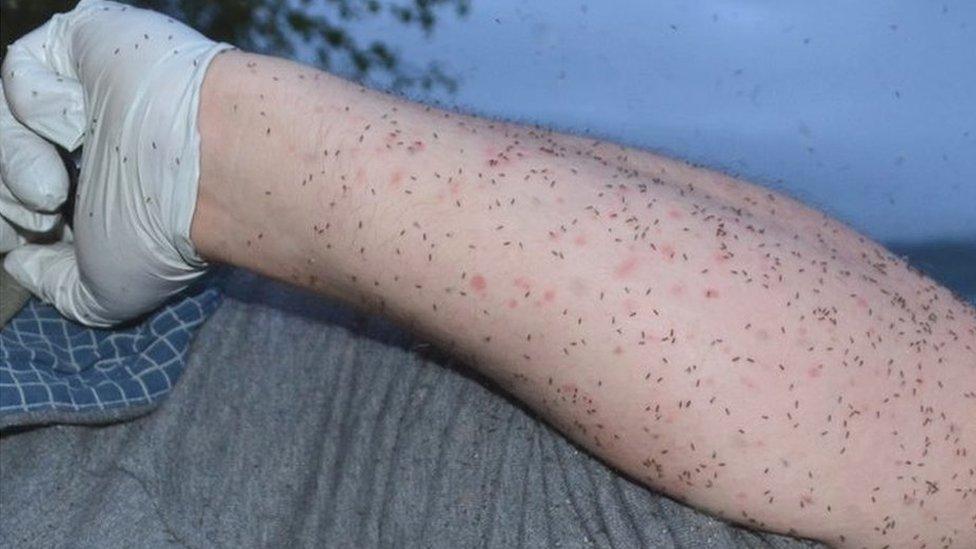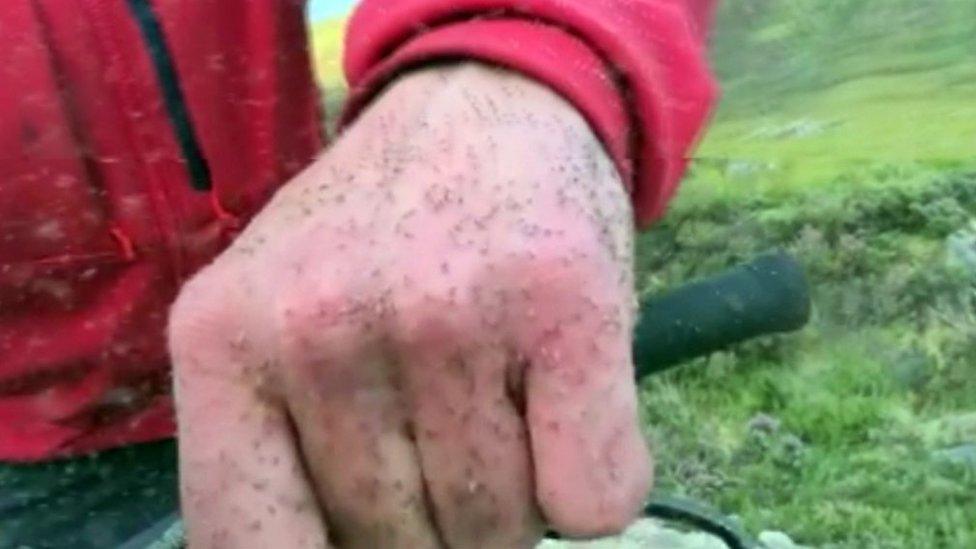Would you volunteer for eight hours of midge bites?
- Published

Swarms of the tiny biting insects torment hikers and campers during the summer months
A firm that makes midge repellent is seeking candidates to stand outside for eight hours to test a new product.
The trial will see 10 brave people paid to put repellent on one arm, while leaving the other exposed to count the number of midges that land.
The tiny biting insects can swarm in massive numbers around Scottish hikers and campers in the summer months.
The test by APS biocontrol, who make the repellent brand Smidge, will be held in Minard or Inveraray in Argyll.
The area is a notorious midge hotspot.
Dr Allison Blackwell of APS biocontrol, said that while the candidates would certainly get bitten, it should not be too bad.
"When a midge lands on your skin, it kind of wanders around before it starts to bite," she said.
"So at that point, one of the staff running the project will take that insect off, so you get very few bites to be honest."
The firm also runs the Scottish Midge Forecast which predicts numbers from data collected by midge traps and mini-weather stations across Scotland.
Midges thrive in wet and warm conditions and usually have two hatchings during the Scottish summer.
Dr Blackwell said that numbers have fallen recently because of the drier warmer summer earlier in the year.
But last week, while camping in the Highlands, professional wildlife photographer James Roddie, 34, came under attack from a swarm and captured it on video.
Wildlife photographer James Roddie reveals the moment he was swarmed by midges
He said: "I personally wouldn't want to take part in a test, simply as I spend a lot of my working life dealing with midges anyway.
"Midges can add an extra layer of complication for outdoor photography shoots and jobs.
"They can make things quite uncomfortable, even whilst wearing a midge net and using repellent."
Smidge is testing the new repellent for another firm for product labelling.
Dr Blackwell added: "If you buy a product from the chemist and it says it protects for 8 hours, there has to be data to back up that claim."
The firm is looking for men and women over the age of 18 to take part in the trial.
Dr Blackwell said there has been lot of interest.
"It's probably because we are paying people," she said.
"But a lot of people are actually fascinated by midges anyway, so people will come out because they want to see what's going on."
- Published2 July 2023

- Published19 June 2023
